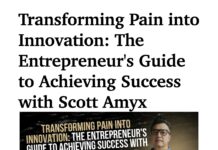Hardware and software innovation has touched innumerable areas of modern life, but none perhaps as personal as medical technology. For the companies and rising startups hoping to redefine how we care for ourselves, innovation is about more than creativity or convenience—it can be a matter of life and death.
The pursuit of medical technology is not an easy road. Even if you manage to create a cutting-edge wearable or medical app that could change the industry, not everyone can benefit right away. Medical tech companies in the United States face a fierce domestic regulatory environment.
As we transition from devices that provide fitness and health data to medical-grade products, startups are struggling with a tough question: Wing it without approval from the U.S. Food and Drug Administration, or tough it out and gain its stamp of approval?
Both choices are rife with challenges, which is one reason the European market has become rather attractive for medical tech startups. But the task of seeking FDA approval, while difficult, is crucial to making in-roads in the U.S. market.
Contending With Regulatory and Legal Issues
Patients and providers in the U.S. are among the last in the world to have the latest medical technology, despite the U.S. having the most innovative medical device companies.
It’s a sad irony that many US companies seek to bring their products overseas first.
Part of the issue stems from the regulatory difficulties of bringing wellness and medical products to market: Local rules and regulations vary, and gaining FDA approval can seem impossible.
A 2012 study by Boston Consulting Group found that most innovative (and potentially risky) medical technologies sanctioned by the Premarket Approval (PMA) process have been approved and made available to patients in Europe three or more years before they get approval in the U.S.
Defining Your Product
Successfully categorizing your product with the FDA can also be a challenge.
Does your product fit in the classification of wellness platform, or do you seek to treat a certain illness or give out patient-specific advice? Navigating the legal definitions can be delicate. The FDA offers a brief set of guidelines to determine if your product is regulated, but those standards are open to interpretation. It’s not always clear how to classify a device or platform, but costly lawsuits are the inevitable result of skirting FDA regulations.
Consulting medical or legal experts can help useful, but is often extremely costly, especially if innovators are not exactly sure how to proceed.
Clearance for an FDA-approved, low-risk device (510k) typically involves engaging consultants on an hourly basis, with some costs starting in the low thousands and edging up to around $30,000 for well-defined submissions.
Businesses ready to begin the consultation process need to perform due diligence in identifying companies with a solid track record of bringing a product into the FDA process.
Differentiating in a Saturated Market
Entrepreneurs in the medical tech space to think expansively. Direct-to-consumer market will be saturated quickly by large corporations that already have strong brand recognition, she noted. Startups can still compete, but they may need to leap-frog over consumer-facing businesses and target institutions.
Getting FDA approval can go far in differentiating a device to consumers. It is largely a trust issue, since the FDA process is well known to healthcare facilities, such as clinics, hospitals, and long-term care facilities. FDA certification allows startups to move forward to develop relationships with a broad range of enterprises in the clinical environment.
Imagine two similar medical devices, one with FDA approval and one without. Which would you choose?
Consumers, generally, will select one with clearance. The FDA seal of approval conveys an aura of legitimacy around a device or product—consumers understand that a rigorous series of tests needs to be completed before a product can come to market, even if they do not understand the specifics of the trials.
Another strategy: Partnering with larger research institutions and companies, which can bring a new dimension to the use of a medical or wellness product. Your device now would have the opportunity to assist with gathering data for more serious medical conditions. Plus, positioning a wearable or IoT medical product in the role of a diagnostic tool opens new avenues for revenue.
Avoiding Pitfalls
Even if you think you don’t really need (or want) FDA approval, you might seek it out for legal purposes.
Avoiding the FDA doesn’t mean you can avoid any kind of regulations. The FTC still regulates truth in advertisement, civil courts and an ever-growing number of cases dealing with the lack of clinical studies to back up medical product claims.
For example, the Federal Trade Commission shut down MelApp for the claim that the product could “detect symptoms of melanoma, even in its early stages” without scientific support.
In a FTC press release, Jessica Rich, director of the FTC’s Bureau of Consumer Protection, highlighted the importance of following the rules: “Truth in advertising laws apply in the mobile marketplace,” she said. “App developers and marketers must have scientific evidence to support any health or disease claims that they make for their apps.”
Startups can face other issues, such as overstepping platform/device claims or actually moving from the wellness area into the diagnostic arena.
Overstepping claims can be a particularly murky area to navigate—after all, what is the consumer going to do with the information from your product?—and slipping into the role of medical provider has already caused some enterprises to pull back.
Even entrenched brands can struggle with understanding the regulatory framework. Some apps, like uChek, have even run afoul of the FDA.
The Bottom Line
There’s a compelling need for technologies that enhance the quality of life for difficult-to-treat diseases, and innovators shouldn’t give up.
While navigating the FDA process can be tricky, it is essential for differentiating your platform or device in a tight market. It is also the only real choice for U.S.-based innovators genuinely interested in improving the health and well-being of those around them.
Originally published on ReadWrite. Published on August 25, 2015. Author Scott Amyx.


















